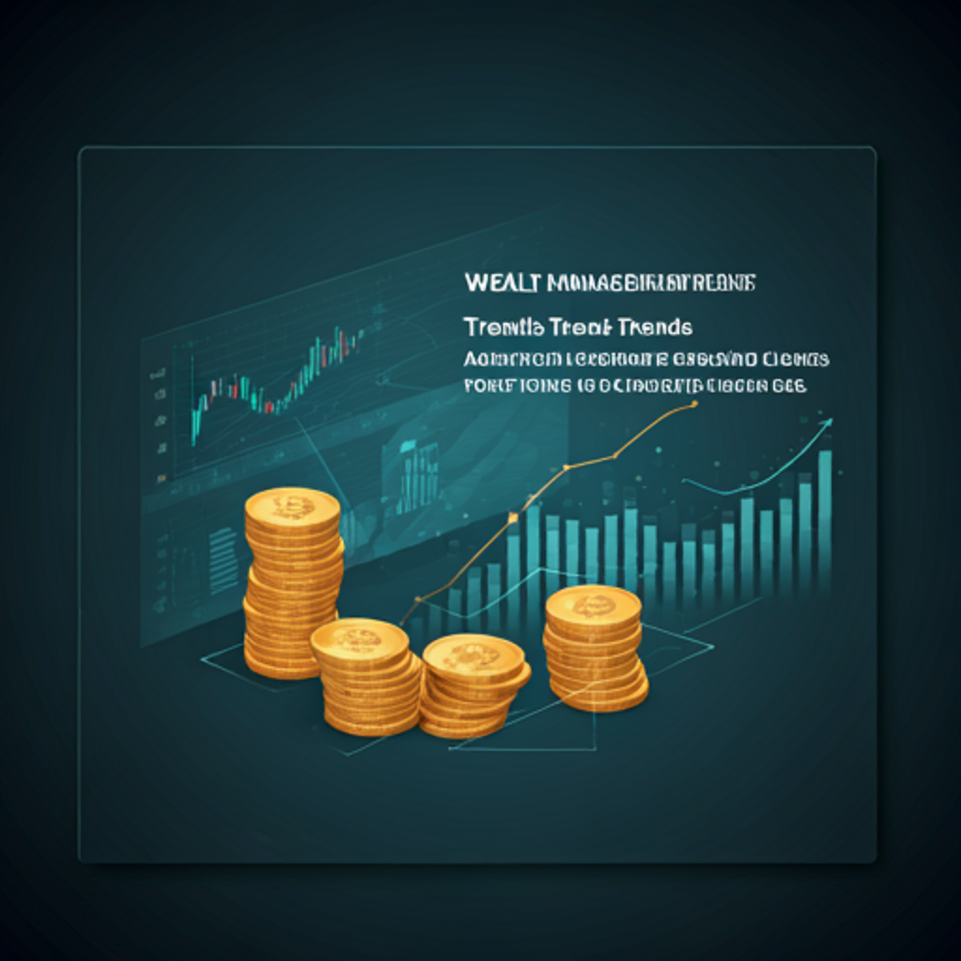Introduction to Wealth Management in the Cryptocurrency Era
The Evolution of Wealth Management
Wealth management has significantly evolved with the advent of cryptocurrency. Financial advisors now integrate digital assets into their portfolios. This shift reflects changing client preferences and the demand for diversification.
Moreover, the rise of blockchain technology has introduced new investment opportunities. Clients seek exposure to cryptocurrencies for potential high returns.
In increase, regulatory frameworks are adapting to these innovations. Compliance is crucial for maintaining client trust.
He must stay informed about market trends. Knowledge is power in this dynamic landscape.
Impact of Cryptocurrency on Traditional Wealth Management
Cryptocurrency has disrupted traditional wealth management practices. Financial advisors are now compelled to reassess asset allocation strategies. This integration requires a nuanced understanding of digital assets. Many clients are increasingly interested in diversifying their portfolios.
Furthermore, the volatility of cryptocurrencies presents unique challenges. Risk management strategies must evolve accordingly. Advisors need to develop robust frameworks to address these risks.
He should consider regulatory implications as well. Compliance is essential for sustainable growth.
Understanding Ckient Needs in a Digital Age
Shifts in Client Demographics
Client demographics are shifting significantly in the digital age. Younger investors are increasingly seeking personalized wealth management solutions. This trend necessitates a deeper understanding of their unique financial goals. Many prioritize sustainability and ethical investing.
Moreover, technology plays a crucial role in client engagement. Digital platforms facilitate real-time communication and transparency. He must leverage these tools to enhance client relationships.
Understanding these shifts is vital for effective service delivery. Knowledge is key in adapting to evolving needs.
Changing Investment Preferences and Risk Tolerance
Investment preferences are evolving rapidly among clients. Many now favor alternative assets, including cryptocurrencies and ESG investments. This shift reflects a growing desire for diversification and ethical considerations. He must recognize these changing priorities to provide tailored advice.
Additionally, risk tolerance is becoming more nuanced. Younger investors often exhibit higher risk appetites. They seek potential high returns despite market volatility.
Understanding these dynamics is essential for effective portfolio management. Knowledge drives informed decision-making in this landscape.
Integrating Cryptocurrency into Wealth Management Strategies
Asset Allocation and Diversification
Effective asset allocation is crucial for maximizing returns. Integrating cryptocurrency can enhance diversification strategies significantly. This approach allows for exposure to high-growth potential assets. He should consider the correlation between cryptocurrencies and traditional investments.
Moreover, a well-balanced portfolio mitigates risks associated with market volatility. Diversification across asset classes is essential for stability.
Investors must regularly reassess their allocations. Market conditions can change rapidly.
Tax Implications and Regulatory Considerations
Tax implications of cryptocurrency investments are complex. He must understand capital gains taxes on digital assets. Each transaction can trigger tax liabilities, impacting overall returns.
Additionally, regulatory considerations are evolving rapidly. Compliance with local laws is essential for risk management.
Investors should stay informed about changing regulations. Knowledge is crucial for strategic planning.
Technological Innovations Shaping Wealth Management
Blockchain Technology and Its Applications
Blockchain technology is revolutionizing wealth management. It enhances transparency and security in transactions. This innovation allows for real-time tracking of assets. He must consider its implications for client trust.
Moreover, smart contracts automate processes, reducing costs. Efficiency is key in today’s market.
Advisors should explore blockchain applications thoroughly. Knowledge is essential for competitive advantage.
Robo-Advisors and AI in Cryptocurrency Investment
Robo-advisors are transforming cryptocurrency investment strategies. They utilize algorithms to optimize portfolio management. This technology provides personalized investment recommendations. He can benefit from data-driven insights.
Additionally, AI enhances market analysis and forecasting. It identifies trends that human analysts might miss.
Investors should consider these innovations seriously. Efficiency is crucial in today’s market.
Client Education and Engagement
Building Trust Through Transparency
Transparency is essential for building client trust. He must provide clear information about investment strategies. This openness fosters a sense of security. Clients appreciate understanding the rationale behind decisions.
Moreover, regular communication enhances engagement and loyalty. Educational resources authorize clients to make informed choices.
Investors should feel confident in their advisors. Knowledge is the foundation of trust.
Resources for Client Education on Cryptocurrency
Providing resources for client education is vital. He should offer comprehensive guides on cryptocurrency fundamentals. These materials can clarify complex concepts effectively. Clients benefit from understanding market dynamics and risks.
Additionally, webinars and workshops enhance engagement. Interactive sessions allow for real-time questions and discussions.
Investors appreciate accessible information and support. Knowledge empowers informed decision-making.
Risk Management in Cryptocurrency Investments
Identifying and Mitigating Risks
Identifying risks in cryptocurrency investments is crucial. He must assess market volatility and regulatory changes. These factors can significantly impzct investment performance . Understanding potential threats is the first step.
Moreover, implementing risk mitigation strategies is essential. Diversification across asset classes can reduce exposure.
Regular portfolio reviews help in adjusting strategies. Staying informed is key to effective risk management.
Developing a Risk Management Framework
Developing a robust risk management framework is essential. He must identify potential risks associated with cryptocurrency investments. This includes market volatility and regulatory uncertainties. Understanding these factors is critical for informed decision-making.
Additionally, establishing clear risk tolerance levels is necessary. Clients should know their limits.
Regular assessments and adjustments enhance the framework’s effectiveness. Knowledge is key to successful management.
The Future of Wealth Management in a Crypto-Driven World
Predictions for Market Trends
Predictions for market trends indicate significant shifts ahead. He should anticipate increased adoption of cryptocurrencies by institutions. This trend may enhance market stability and liquidity.
Furthermore, regulatory frameworks are likely to evolve. Compliance will become more critical for investors.
Technological advancements will also shape investment strategies. Knowledge is essential for navigating these changes.
Preparing for Regulatory Changes and Market Volatility
Preparing for regulatory changes is essential for investors. He must stay informed about evolving compliance requirements. These changes can significantly impact investment strategies. Understanding regulations is crucial for risk management.
Additionally, market volatility requires proactive planning. He should develop flexible investment approaches.
Regular portfolio reviews help in adapting to fluctuations. Knowledge is power in uncertain markets.
